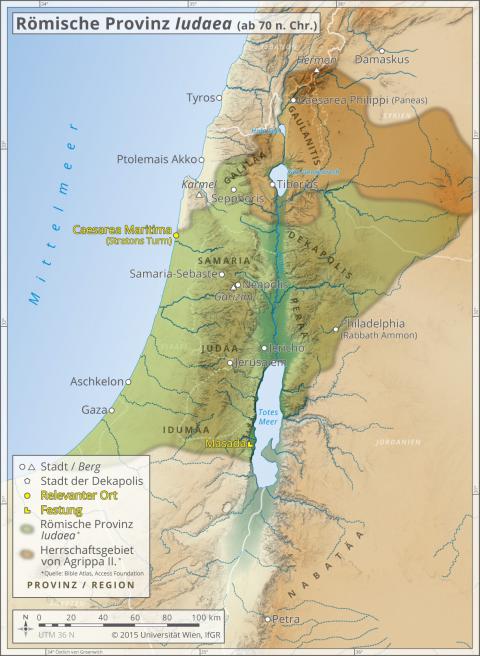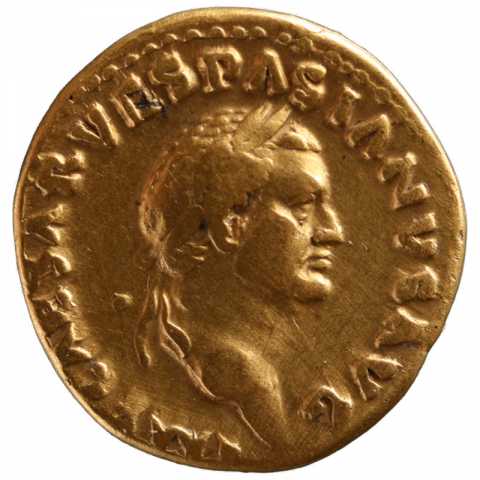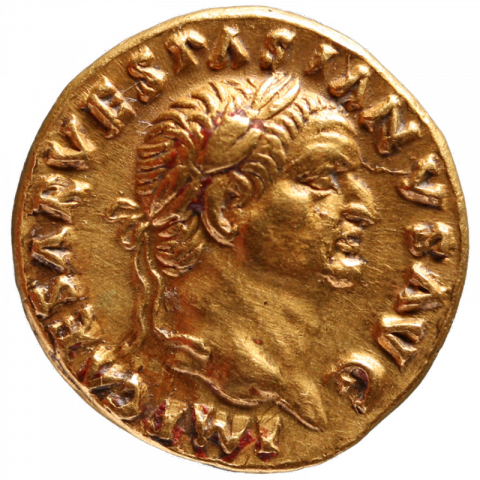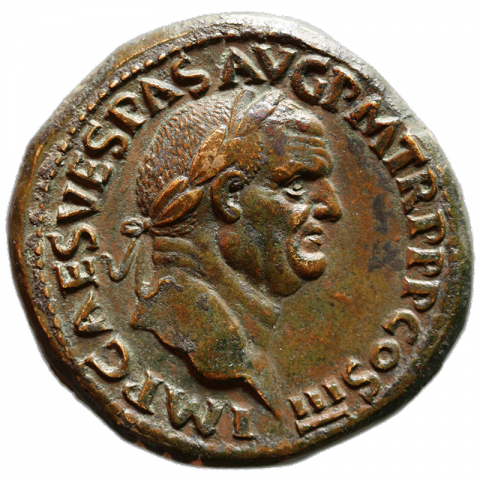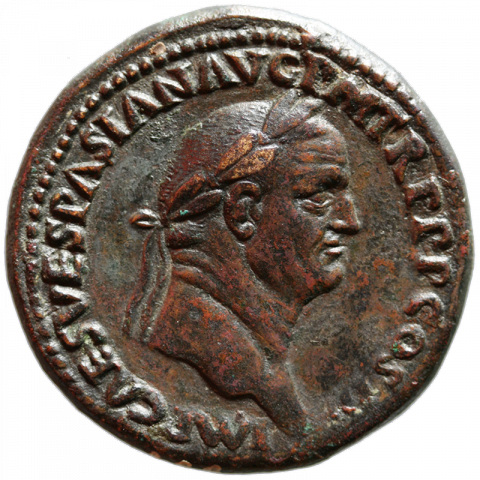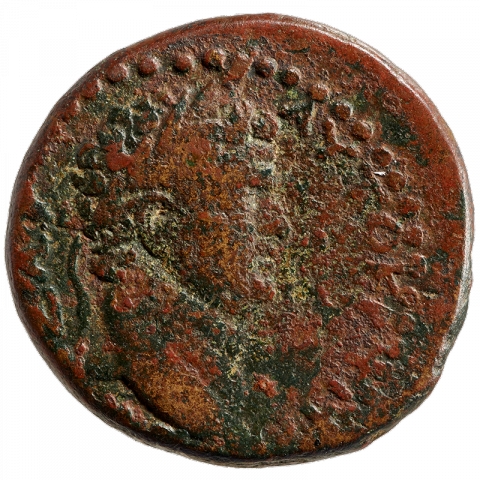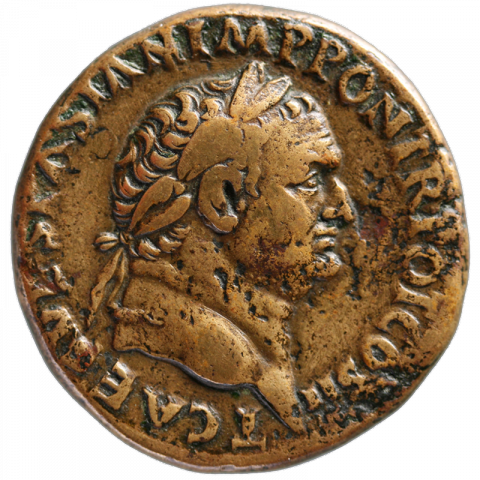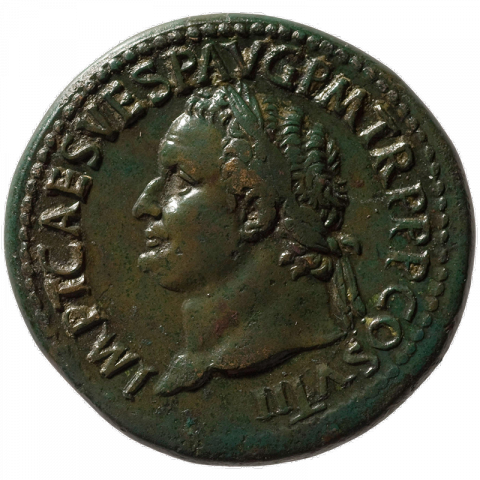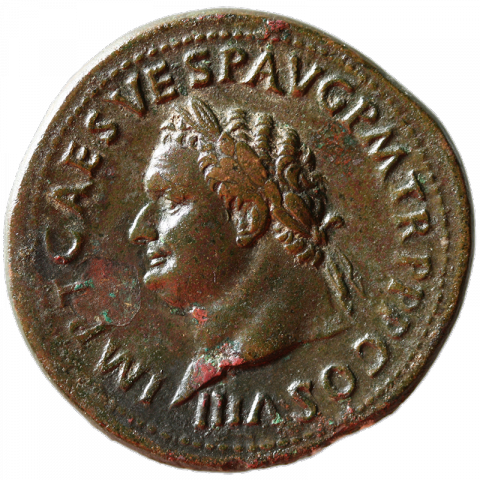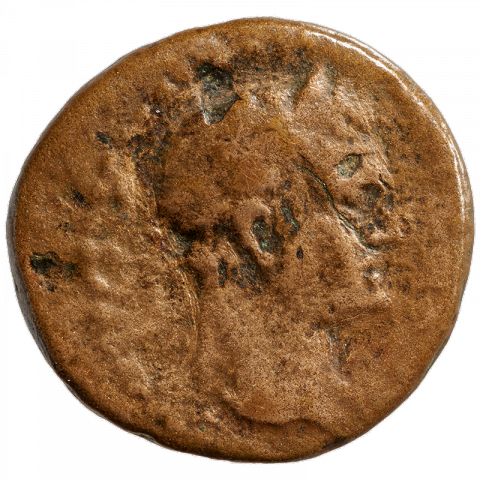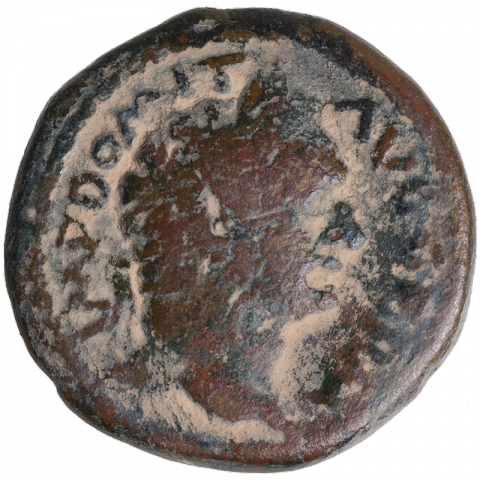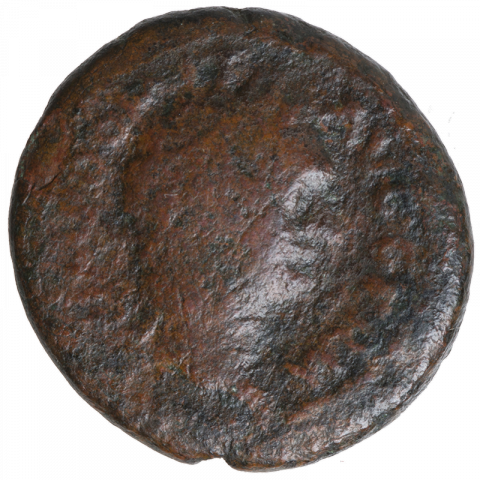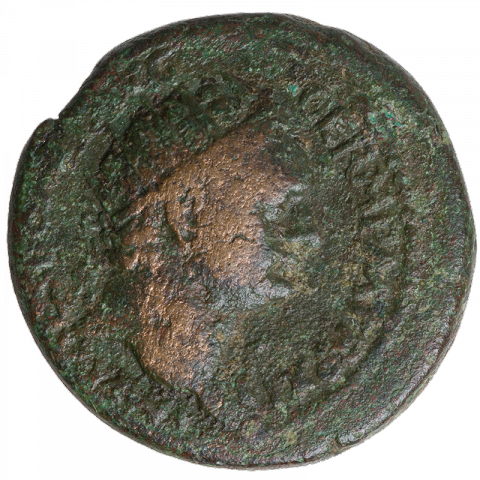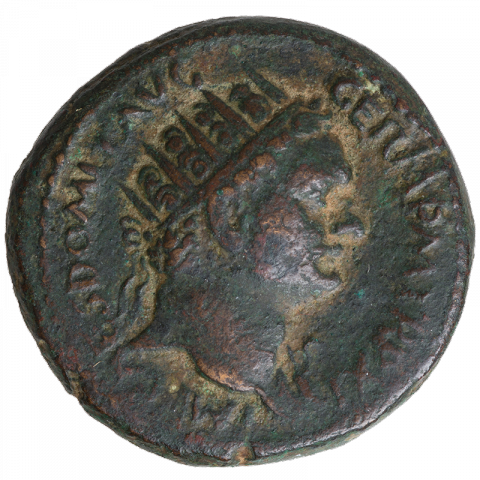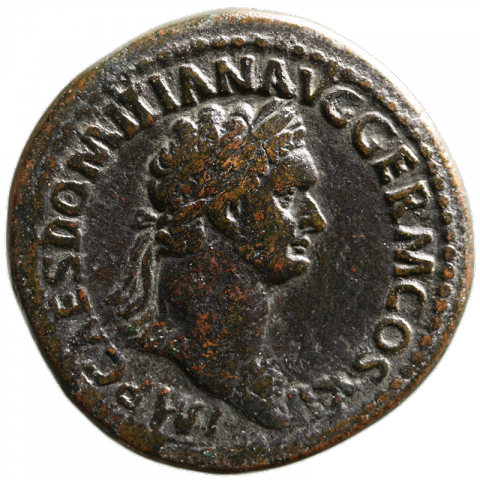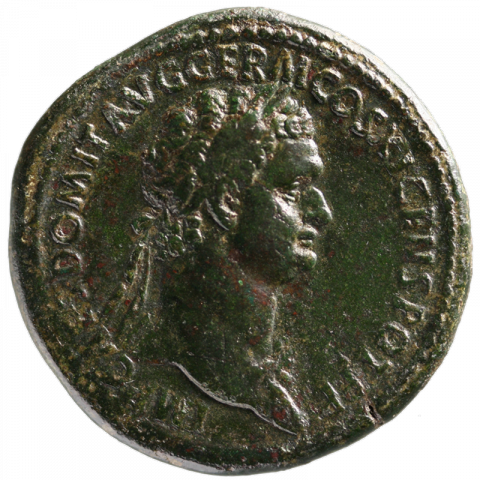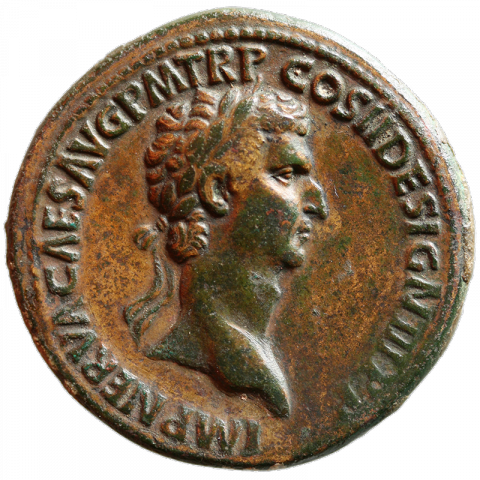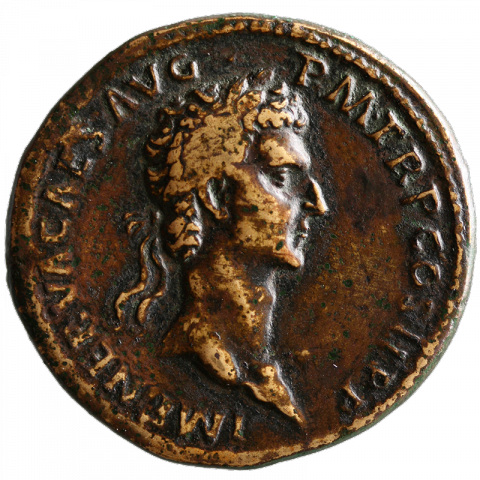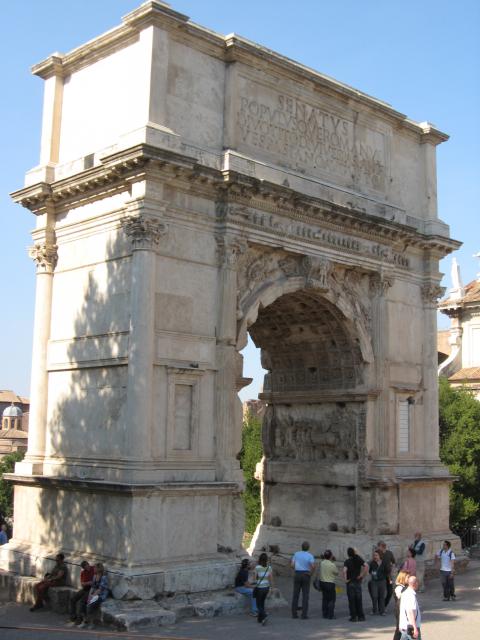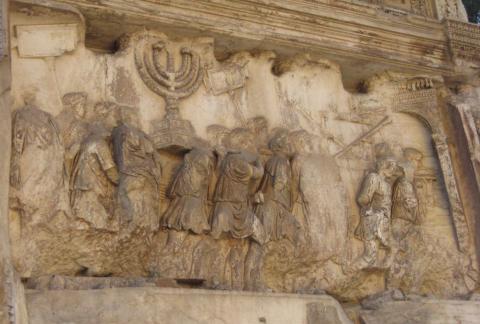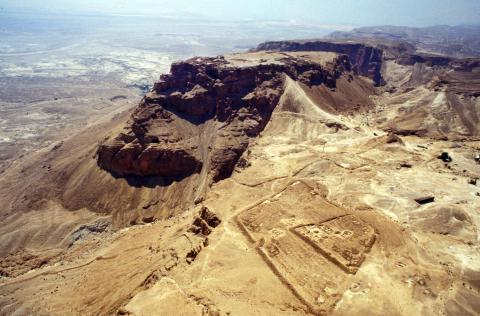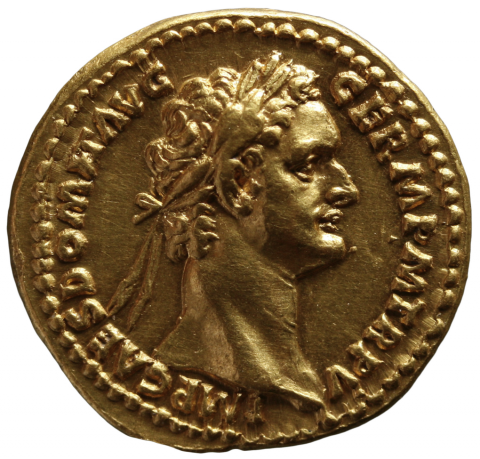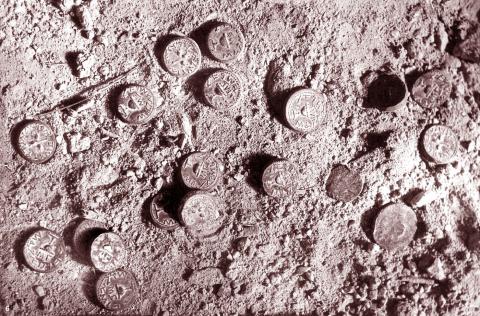The loss of Jerusalem and the Temple in particular meant that the political and religious situation of the Jews changed radically from the early 2nd century CE. All parts of Jewish society were obliged to redefine their religious practices and indeed their lives as Jews. This applied particularly to those living in Palestine. The priestly aristocracy predominantly, which had formerly been directly associated with the Temple, lost importance after the First Jewish War, and the elite of Jerusalem were dispersed. The rise of rabbinical Judaism following the First War was accompanied not least by greater diversity regarding the adherence to Jewish laws.
The Romans as Victors
The capture of Jerusalem was an important subject in the coinage of Vespasian and Titus. Coins with related images were minted in gold, silver, and other non-ferrous metals. Representations of the siege and the prisoners were the central motifs. The depiction of a mourning female figure seated on the ground, the personification of Judea, is most common (for example No.1A and No.1B). She is accompanied by the Roman emperor in heroic pose, or by other figures (No.2B and No.4B). Jewish prisoners with their hands bound behind their backs can also be seen (No.3B), as can war trophies (No.1B). With the accompanying inscription IVDAEA CAPTA (captured Judea), the coin became an expressive message bearer.
As Domitian did not take part in the victory over Judea, no IVDAEA CAPTA coins were minted for him. He attempted to emulate the military success of his father and brother with a triumph over the Germanic tribes. Having achieved this, he largely employed motifs that had been conceived under his father and brother for the imperial currency, replacing Iudaea (Capta) with Germania (Capta) (No.9A). Domitian also assumed the title Germanicus. In Palestine, coins from the Roman administration in Caesarea Maritima are also extant. They were issued under Domitian and show the victorious emperor with the title Germanicus, though they are adorned with the depiction of a palm tree (No.8B), an allusion to the palm on the IVDAEA CAPTA coins. Herod Agrippa II had celebrated Domitian’s victory over the Germanic tribes similarly a few years prior (No.6B).
A coin type issued under Nerva from the year 96 CE with the inscription FISCI IVDAICI CALVMNIA SVBLATA (the calumny of the Jewish tax is removed) spread a message with which the new emperor courted public favour (No.10A). The tax was probably now only borne by self-confessed Jews.
Findings from Masada document the defeat of the Jews in 74 CE. A hoard of silver shekels and half-shekels from the five years of the war was excavated there (Fig. E.). It had probably been brought to Masada near the end of the war by a member of the insurgency from Jerusalem, the minting location of these coins, before the fortress was surrounded and stormed by the Romans.
Further Reading
M. Heemstra, The Fiscus Judaicus and the Parting of the Ways, Tübingen 2010
Y. Meshorer, A Treasury of Jewish Coins. From the Persian Period to Bar Kokhba, Jerusalem 2001
Y. Meshorer et al., Coins of the Holy Land. The Abraham and Marian Sofaer Collection at the American Numismatic Society and the Israel Museum, New York 2013, 2 vols.
P. Schäfer, Judeophobia. Attitudes toward the Jews in the Ancient World, Harvard 1998

